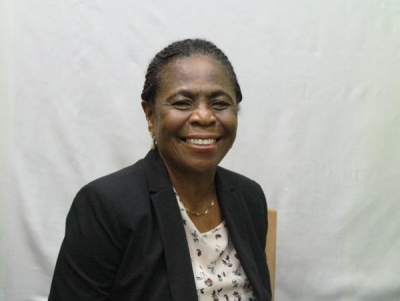By Asma’u Ahmad
Some experts on Wednesday called for collaboration between the government at all levels and health institutions in Nigeria to provide free Human Papillomavirus (HPV) vaccines for women and young children.
They spoke with newsmen on the sidelines of the first HPV Awareness programme at the Lagos University Teaching Hospital (LUTH), Idi-Araba, Lagos. This is to mark the first International Human Papillomavirus (HPV) Awareness Day to be commemorated annually on March 4. The day seeks to promote awareness on HPV infections, how they are spread, as well as preventive measures.
In her comments, Prof. Rose Anorlu, a Consultant Obstetrician and Gyneacologist in LUTH, said: “Provision of free HPV vaccines for women and children can help to prevent the spread of the virus.
“HPV vaccine reduces the risk of HPV-related diseases and cancers; women who have had HPV vaccine still need to have cervical screening. We appeal to our governments to make it possible for HPV screenings and vaccines to be free for women and children.”
Anorlu, who is also Head, Obstetrics and Gyneacology in LUTH, said that HPV was common among boys, girls, men and women because “it is a sexually transmitted virus. “HPV is a sexually transmitted virus and there are around 200 types of HPV; the subset of HPV types that infect the genital region can cause warts and deadly cancers such as cervical cancer. “It is also responsible for other diseases such as anal cancer, cancer of the throat, penis and vagina. It is not everyone who has HPV that can result to cancer, because some people’s immune system clears the virus,” she said.
The gynaecologist and obstetrician said that avoiding HPV could be difficult because over 80 per cent of sexually active people got at least one genital HPV infection at some point. On some precautionary measures against getting HPV, she said, “Getting vaccine to prevent HPV infection is recommended.
“Condoms can also reduce the chances of getting HPV, but not to eliminate it; also, reducing the number of sexual partners is also very important. It is important to administer HPV vaccines to children who are from the ages of nine to 14. “People who are already infected with HPV cannot get the vaccine, because the vaccine cannot cure it; they can only go for pap smear screening test,” Anorlu said.
Also, Dr Adebayo Sekumade, another gynaecologist in LUTH, advised people to get the HPV vaccine to prevent getting the virus. Sekumade, a Senior Registrar in the Department of Obstetrician and Gyneacologist, said that HPV vaccine had been proven, having been extensively and independently evaluated.
“The World Health Organisation (WHO) recommends vaccination, because its scientific evidence shows that HPV vaccines are extremely safe. This awareness helps us to enlighten the public more on HPV and the fact that it can also be prevented early. “HPV vaccine is available in the hospital, but the cost is on the high side. So, we need the assistance of governments and non-governmental organisations,” he said.
Sekumade advised people to go for routine medical tests for early detection and management of HPV to avoid cancers and HPV-related diseases.





